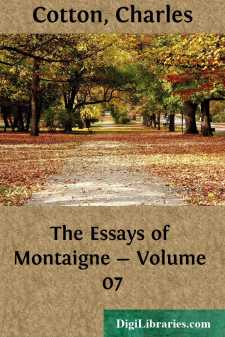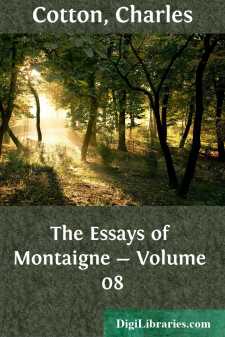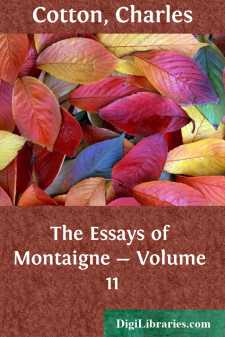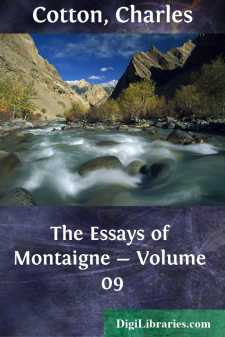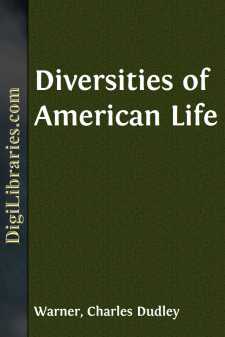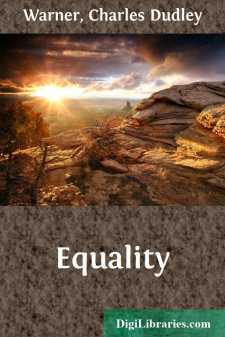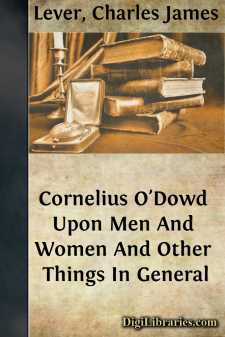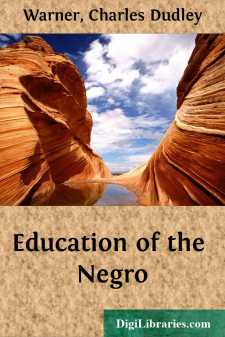Literary Collections
- American 84
- Ancient, Classical & Medieval 14
- Asian 1
- Australian & Oceanian 1
- Canadian 55
- Continental European 121
- English, Irish, Scottish, Welsh 179
- Essays
- General 24
- Letters 46
- Middle Eastern 1
Essays Books
Sort by:
by:
Charles Cotton
A CONSIDERATION UPON CICERO One word more by way of comparison betwixt these two. There are to be gathered out of the writings of Cicero and the younger Pliny (but little, in my opinion, resembling his uncle in his humours) infinite testimonies of a beyond measure ambitious nature; and amongst others, this for one, that they both, in the sight of all the world, solicit the historians of their time not...
more...
by:
Charles Cotton
OF WAR HORSES, OR DESTRIERS I here have become a grammarian, I who never learned any language but by rote, and who do not yet know adjective, conjunction, or ablative. I think I have read that the Romans had a sort of horses by them called 'funales' or 'dextrarios', which were either led horses, or horses laid on at several stages to be taken fresh upon occasion, and thence it is...
more...
by:
Charles Cotton
THE CEREMONY OF THE INTERVIEW OF PRINCES There is no subject so frivolous that does not merit a place in this rhapsody. According to our common rule of civility, it would be a notable affront to an equal, and much more to a superior, to fail being at home when he has given you notice he will come to visit you. Nay, Queen Margaret of Navarre—[Marguerite de Valois, authoress of the...
more...
by:
Charles Cotton
When we judge of another's assurance in death, which, without doubt, is the most remarkable action of human life, we are to take heed of one thing, which is that men very hardly believe themselves to have arrived to that period. Few men come to die in the opinion that it is their latest hour; and there is nothing wherein the flattery of hope more deludes us; It never ceases to whisper in our ears,...
more...
by:
Charles Cotton
CHAPTER I OF THE INCONSTANCY OF OUR ACTIONS Such as make it their business to oversee human actions, do not find themselves in anything so much perplexed as to reconcile them and bring them into the world's eye with the same lustre and reputation; for they commonly so strangely contradict one another that it seems impossible they should proceed from one and the same person. We find the younger...
more...
by:
Charles Cotton
CHAPTER I OF PROFIT AND HONESTY No man is free from speaking foolish things; but the worst on't is, when a man labours to play the fool: "Nae iste magno conatu magnas nugas dixerit." ["Truly he, with a great effort will shortly say a mighty trifle." —-Terence, Heaut., act iii., s. 4.] This does not concern me; mine slip from me with as little care as they are...
more...
This is a very interesting age. Within the memory of men not yet come to middle life the time of the trotting horse has been reduced from two minutes forty seconds to two minutes eight and a quarter seconds. During the past fifteen years a universal and wholesome pastime of boys has been developed into a great national industry, thoroughly organized and almost altogether relegated to professional...
more...
In accordance with the advice of Diogenes of Apollonia in the beginning of his treatise on Natural Philosophy—"It appears to me to be well for every one who commences any sort of philosophical treatise to lay down some undeniable principle to start with"—we offer this: All men are created unequal. It would be a most interesting study to trace the growth in the world of the doctrine of...
more...
MYSELF. Bland Reader,—If you ever look into the Irish papers—and I hope you are not so exclusive regarding them as is Mr Cobden with the 'Times'—you will see that, under the title, "Landed Estates Court, County Mayo," Judge Dobbs has just sold the town and lands of Kilmuray-nabachlish, Ballaghy, and Gregnaslattery, the property of Cornelius O'Dowd, Esq. of Dowd's...
more...
At the close of the war for the Union about five millions of negroes were added to the citizenship of the United States. By the census of 1890 this number had become over seven and a half millions. I use the word negro because the descriptive term black or colored is not determinative. There are many varieties of negroes among the African tribes, but all of them agree in certain physiological if not...
more...


